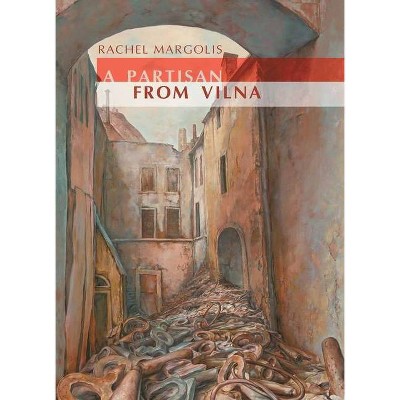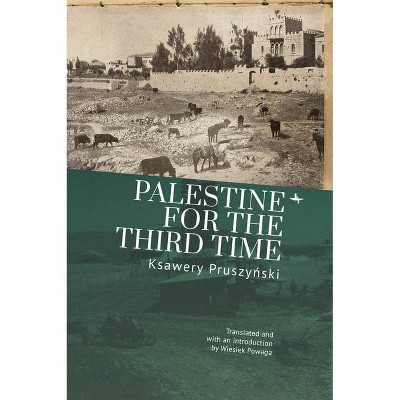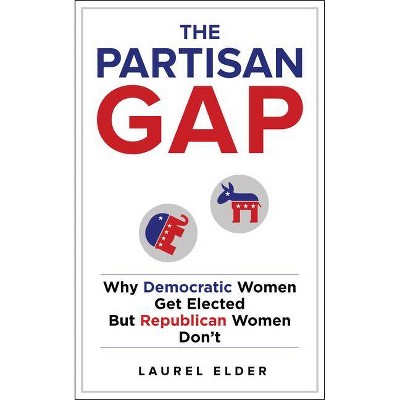A Partisan from Vilna - (Jews of Poland) by Rachel Margolis (Paperback)

Similar Products
Products of same category from the store
AllProduct info
<p/><br></br><p><b> About the Book </b></p></br></br>Margolis, the sole survivor of her family, escaped from the Vilna Ghetto with other members of the resistance movement, the FPO (United Partisan Organization), and joined the Soviet partisans in the forests of Lithuania to sabotage the Nazis. Her memoir details her life and struggles.<p/><br></br><p><b> Book Synopsis </b></p></br></br>"A Partisan from Vilna" is the memoir of Rachel Margolis, the sole survivor of her family, who escaped from the Vilna Ghetto with other members of the resistance movement, the FPO (United Partisan Organization), and joined the Soviet partisans in the forests of Lithuania to sabotage the Nazis. Beginning with an account of Rachel's life as a precocious, privileged girl in pre-war Vilna, it goes on to detail life in the Vilna Ghetto, including the development and struggles of the FPO against the Nazis. Finally, the book chronicles the escape of a group of FPO members into the forest of Belorussia, where Rachel became a partisan fighter. Rachel Margolis received a Ph.D. in biology in and taught until the late 1980's. She then co-founded Lithuania's only real Holocaust museum, the Green House in Vilnius. She is also responsible for the discovery and transcription of the Kazimierz Sakowicz diary, published here in the US under the title, "Ponary Diary: A Bystander's Account of Mass Murder" (Yale University Press, 2004). The book opens with an introductory essay by renowned Polish historian, Antony Polonsky.<p/><br></br><p><b> Review Quotes </b></p></br></br><br>Arguably the most extraordinary Holocaust survivor of our time, Rachel Margolis left a safe hiding place to join her (doomed) family in the Vilna Ghetto, then left the ghetto to join the anti-Nazi partisans in the forests. After the collapse of the USSR, she helped build a small Holocaust museum, then rediscovered, transcribed and published the lost diary of a Christian Pole who witnessed tens of thousands of murders of Jews by enthusiastic Lithuanian nationalists. In her mid eighties, she published the Russian original of this memoir. The local anti-Semitic press focused on one paragraph, took it out of context, and then - in May 2008, armed police came looking for Rachel and a fellow woman partisan survivor. Currently living in Israel and prevented from returning to her native Vilna (now Vilnius, Lithuania) by the prosecutors' campaign, she is a survivor who can't return home. This book is the reason why. In publishing it in English, Academic Studies Press does a great service to both the dwindling community of Holocaust survivors, and the growing community of readers who just want to know.--Dovid Katz, Professor of Judaic Studies, Vilnius University; Director of Research, Vilnius Yiddish Institute "www.HolocaustInTheBaltics.com"<br><br>Lithuanian war hero Rachel Margolis is one of the most courageous women in her country's history.--Former Prime Minister Gordon Brown "The Independent"<br><br>Rachel Margolis' A Partisan from Vilna is an important memoir. Like many survivor memoirs, there are three major sections: Before, During and After. But unlike most memoirs Margolis expends considerable time and energy depicting her youth in Vilna as the daughter of a prominent physician. She also describes vividly the transition in Vilna from independent rule to Soviet rule and then the German invasion and its aftermath; mass murder followed by ghettoization. As a Partisan fighter she offers important information on the struggle within the ghetto between resistance forces and the general population. She engages the all important issue surrounding the decision by the resistance leader Wittenberg to give himself up and thus save - at least for a time - the ghetto from German retribution, and finally she takes us through the great debate in Vilna between those wanting to wage battle within the ghetto and those who felt that the only meaningful way to fight was to go to the woods. Throughout, she also shares with the reader the personal story of her own life; her relationship with her parents; her intellectual maturation and independence, her separation from her parents and their deaths, and her finding love in the midst of catastrophe. As if these issues were not sufficient to give the memoir significant importance, Margolis portrays with candor and considerable insight the tensions between Jewish Partisans and Soviet fighters, between Polish and Lithuanian forces and also the peasant population surrounding the woods. She does not portray herself as a hero but in the ordinariness of everyday life under the most extraordinary of conditions. The result is a compelling, powerful and poignant memoir that takes us inside the ghettos and the bunkers, inside the woods and the dugouts, into the battles and the struggles for survival that shaped her young life.--Michael Berenbaum, Director of Sigi Ziering Institute, Professor of Jewish Studies<br><br>This English translation of the memoir of Rachel Margolis, a Lithuanian Jew who survived the Vilna ghetto to become a freedom fighter, is introduced with a brief history of Jewish life in Vilna, one of the oldest centers in the Baltic for Jewish scholarship. It ends with an epilogue written by her cousin Marjorie that gives a chilling picture of the amount of anti-Semitism that still exists in Lithuania. The memoir itself is a series of vignettes. Her life before the war takes up more than half the book and is filled with family tales, school friends and her anger at her father's many affairs. Margolis does not make the dead into saints. The last third of the book relates her experiences in the war as it slowly becomes clear that Jews are not simply to be persecuted, but exterminated. She does not romanticize partisan life, either. They endured cold, disease, poor food, personal antagonisms and betrayal. While the writing style is somewhat clumsy, the force of the story carries the reader through.--Annotation (c)2010 Book News Inc. Portland, OR<br><br>"One of the last surviving partisans of Vilna, Rachel Margolis has written a vivid and compelling account of the murder of Lithuania's Jews, and of the battle for survival and dignity amongst those who escaped. It is also a testament to those who in the midst of degradation and destruction continued to embrace the best ideals of humanity even as they determined to resist and fight back against the Nazis and their local collaborators. And, at the same time it is an intimate portrait of a creative and vibrant community, the Jews of Vilna, as well as a deeply personal account of growth and maturity in the midst of that turbulent and tragic period. This book serves as a stark reminder to those who would deny or trivialize the reality of the Holocaust in Lithuania and reminds us once again of the human dimension of that genocide. The questions that it raises about resistance and complicity, collaboration and betrayal, anti-Semitism and xenophobia, are questions that resonate even today. It is only by facing the past and that we can hope to build a better future. Rachel Margolis, through this memoir, as well as her other activities in Vilna, has helped set us on that path. We are all in her debt for doing so, and can only hope for the widest possible impact of this evocative, authentic and powerful memoir."--Mark Weitzman, Director of Government Affairs, Simon Wiesenthal Center<br><p/><br></br><p><b> About the Author </b></p></br></br>After the Holocaust, Rachel Margolis received a Ph.D. in biology in and taught until the late 1980's. She then co-founded Lithuania's only real Holocaust museum, the Green House in Vilnius. She is also responsible for the discovery and transcription of the Kazimierz Sakowicz diary, published here in the US under the title, Ponary Diary: A Bystander's Account of Mass Murder (Yale University Press, 2004).
Price History
Price Archive shows prices from various stores, lets you see history and find the cheapest. There is no actual sale on the website. For all support, inquiry and suggestion messagescommunication@pricearchive.us




















